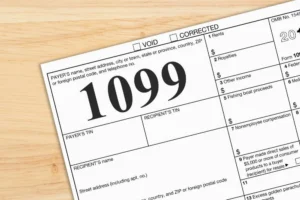If you’re a business owner with employees, understanding the difference between IRS Forms 940 and 941 can save you from costly mistakes and penalties. These two employment tax forms serve completely different purposes, have different filing schedules, and report different types of taxes. Getting them wrong could mean facing IRS penalties or missing important deadlines.
This guide breaks down everything you need to know about both forms so you can file with confidence.
Form 940 vs 941 Key Differences at a Glance
Quick answer:
- Form 940 reports federal unemployment taxes annually, while Form 941 reports federal income tax withholding, Social Security, and Medicare taxes quarterly.
- Form 940 is due January 31st each year, whereas Form 941 is due at the end of the month following each quarter.
| Tax Category | Form 940 | Form 941 |
|---|---|---|
| Filing Frequency | Due Annually | Due Quarterly |
| Federal Unemployment Taxes | ✓ | — |
| Medicare Tax | — | ✓ |
| Social Security Tax | — | ✓ |
| Federal Income Tax Withholding | — | ✓ |
What is IRS Form 940
Form 940 is the annual federal unemployment tax return. Every business with employees must file this form to report their FUTA (Federal Unemployment Tax Act) obligations. This tax funds unemployment compensation programs that provide financial support to workers who have lost their jobs.
The FUTA tax applies only to the first $7,000 you pay each employee during the calendar year. If an employee earns $50,000, you only calculate FUTA tax on the first $7,000 of their wages. Any amount above this threshold is FUTA-exempt.
Here’s what makes Form 940 unique: employers pay this tax entirely. You don’t withhold FUTA from employee paychecks.
According to the Internal Revenue Service, the standard FUTA tax rate is 6% of the first $7,000 in wages. However, most employers receive a credit of 5.4% for paying state unemployment taxes on time, reducing the effective rate to just 0.6%.
You must file Form 940 if either of these apply:
- You paid wages totaling $1,500 or more in any calendar quarter
- You had at least one employee work for any part of a day during 20 different weeks in the year
This includes part-time and temporary employees.
Filing tips for accuracy:
- Include your EIN and company name on every page
- Round amounts to the nearest dollar (if you round one value, round them all)
- Skip decimal points and dollar signs
- Leave blank any lines with zero values
What is IRS Form 941
Form 941 is the quarterly federal tax return that reports employment taxes withheld from employee wages. Unlike Form 940, this form covers multiple tax types and must be filed four times per year.
Employers use Form 941 to report:
- Federal income tax withheld from employee paychecks
- Employee portion of Social Security tax (6.2%)
- Employee portion of Medicare tax (1.45%)
- Employer portion of Social Security tax (6.2%)
- Employer portion of Medicare tax (1.45%)
These taxes are collected from employee wages throughout each quarter, and employers match the Social Security and Medicare contributions.
According to the Internal Revenue Service, employers must file Form 941 even if they have no taxes to report for a quarter once they’ve filed their first return. You remain in the quarterly filing system until you formally notify the IRS that you’ve stopped paying wages.
Form 941 reports the following information:
- Total employee wages, tips, and other compensation
- Federal income tax withheld from all employees
- Both employee and employer shares of Social Security and Medicare taxes
- Any adjustments for sick pay or group-term life insurance
- Qualified small business payroll tax credits
Filing Requirements for Form 940
Not every business needs to file Form 940. The IRS has specific thresholds that trigger the filing requirement.
File Form 940 if you:
- Paid $1,500 or more in total wages during any calendar quarter in the current or previous year
- Had one or more employees for at least part of a day in 20 or more different weeks during the current or previous year
The 20-week rule counts each separate week, not consecutive weeks. If an employee works just one hour on Monday, that counts as one week toward your total.
Exemptions from Form 940:
- Household employers paying less than $1,000 in quarterly wages
- Agricultural employers with specific payroll thresholds
- Employees of tax-exempt organizations
- State and local government employees
- Federally recognized tribal government employees
If you’re unsure whether you need to file, err on the side of caution and consult with a tax professional. The penalty for not filing when required can be steep.
Filing Requirements for Form 941
Most employers must file Form 941 quarterly. The requirement kicks in as soon as you hire your first employee and withhold any federal taxes from their paycheck.
You must file Form 941 if you:
- Withhold federal income tax from employee wages
- Pay Social Security and Medicare taxes
- Operate any type of business with employees (corporations, partnerships, sole proprietorships, nonprofits)
Exceptions to quarterly filing:
- Seasonal employers only file for quarters when they have employees
- Household employers report these taxes on Schedule H with their personal tax return
- Farm employers with specific payroll arrangements may file Form 943 annually instead
- Businesses with annual employment tax liability of $1,000 or less may qualify to file Form 944 annually
Once you file your first Form 941, you must continue filing every quarter even if you have zero wages to report. You’re locked into the quarterly system until you officially notify the IRS that you’ve stopped paying wages or your business has closed.
Form 940 Filing Deadlines and Payment Rules
Form 940 is due annually by January 31 of the following year. For example, your 2024 Form 940 must be filed by January 31, 2025.
However, you may qualify for an automatic extension. If you deposited all your FUTA tax when it was due, you get until February 10 to file the form.
Quarterly deposit requirements:
You don’t wait until January to pay FUTA tax. If you owe more than $500 in FUTA tax for any quarter, you must deposit that amount by the last day of the month following the end of the quarter.
- Quarter 1 (Jan-Mar): Deposit by April 30
- Quarter 2 (Apr-Jun): Deposit by July 31
- Quarter 3 (Jul-Sep): Deposit by October 31
- Quarter 4 (Oct-Dec): Deposit by January 31 (or pay with Form 940 if under $500)
If your FUTA tax liability is $500 or less for the quarter, you can carry it forward to the next quarter instead of making a deposit.
All FUTA tax deposits must be made electronically through the Electronic Federal Tax Payment System (EFTPS).
Form 941 Filing Deadlines and Payment Rules
Form 941 follows a strict quarterly schedule. Each return is due by the last day of the month following the end of the quarter.
Quarterly due dates:
- Q1 (Jan-Mar): Due April 30
- Q2 (Apr-Jun): Due July 31
- Q3 (Jul-Sep): Due October 31
- Q4 (Oct-Dec): Due January 31
If you deposited all taxes for the quarter on time and in full, you get a 10-day extension. For example, if you deposited all Q1 taxes correctly, your Form 941 deadline extends from April 30 to May 10.
Payment deposit schedules:
Your deposit frequency depends on your total tax liability during a lookback period. There are two possible schedules:
Monthly depositors must deposit employment taxes by the 15th of the following month. Most new employers start as monthly depositors.
Semiweekly depositors must deposit taxes within three business days if payday falls on Wednesday, Thursday, or Friday, or within two business days if payday is Saturday through Tuesday.
The IRS assigns your deposit schedule based on your total tax liability during a four-quarter lookback period. If you reported $50,000 or less in taxes, you’re a monthly depositor. If you reported more than $50,000, you become a semiweekly depositor.
Credit Reduction States and Form 940
Credit reduction states add complexity to your FUTA tax calculation. These are states that borrowed money from the federal government to pay unemployment benefits but haven’t repaid the loans on time.
Normally, employers receive a 5.4% credit against the 6% FUTA tax rate when they pay state unemployment taxes, bringing the effective rate down to 0.6%. In credit reduction states, this credit decreases, which means you pay more FUTA tax.
The reduction typically starts at 0.3% for the first year a state has outstanding loans, then increases by an additional 0.3% for each subsequent year.
For example, if you’re in a credit reduction state with a 0.3% reduction:
- Standard FUTA rate: 6%
- Normal credit: 5.4%
- Reduced credit: 5.1% (5.4% – 0.3%)
- Your effective rate: 0.9% instead of 0.6%
According to the U.S. Department of Labor, credit reduction states change annually based on which states have outstanding federal loans. Check the current year’s credit reduction states before calculating your FUTA tax to avoid underpayment.
If you have employees in multiple states, you must track credit reduction status separately for each state using Schedule A of Form 940.
Common Filing Mistakes to Avoid
Filing employment tax forms incorrectly can trigger IRS notices, penalties, and interest charges. Here are the most common mistakes employers make with Forms 940 and 941:
- Incorrect or missing EIN: Double-check that your Employer Identification Number appears correctly on every page. Transposed digits are one of the most frequent filing errors.
- Wrong business address: According to the Internal Revenue Service, incorrect addresses are a leading cause of form rejections. Update your address with the IRS before filing if your business has moved.
- Calculation errors: Mistakes in math can lead to underpayment or overpayment. Use payroll software or work with a professional to minimize calculation errors, especially when dealing with year-end adjustments or credit calculations.
- Missing deadlines: Late filing triggers automatic penalties. For Form 941, the IRS charges 5% of unpaid taxes for each month or part of a month that a return is late, up to 25% of the unpaid tax amount. Learn more about what to do if you’ve missed the tax deadline.
- Forgetting about credit reduction: Employers in credit reduction states who use the standard 0.6% FUTA rate will underpay their taxes and face penalties.
- Not filing zero returns: If you filed Form 941 once, you must file every quarter until you notify the IRS that you’ve stopped paying wages, even if you had no employees that quarter.
- Filing the wrong form correction: Form 941-X corrects errors on previously filed 941 returns. For Form 940, check the “Amended return” box on a new Form 940. Using the wrong correction method delays processing.
If you need help with ongoing tax preparation and filing, consider working with a tax professional who specializes in employment taxes to maintain compliance.
What If You Sold Your Business
When you sell your business, both you and the new owner have separate filing responsibilities. Understanding these requirements prevents gaps in reporting that could trigger IRS inquiries.
Your responsibilities as the seller:
File a final Form 941 for the quarter when you sold the business. Report only the wages you paid before the sale date. Check the box indicating this is a final return.
The buyer’s responsibilities:
The new owner must file Form 941 for the same quarter, reporting wages paid after the purchase date. They should file a regular quarterly return going forward.
Both parties need to report the correct wages for their respective ownership periods. The IRS tracks wages by EIN, so there’s no double-reporting as long as each party uses their own EIN.
For Form 940:
File a final Form 940 for the year showing FUTA wages paid during your period of ownership. The new owner will file their own Form 940 covering wages after the purchase.
Similarly, if your business closes permanently or you stop paying wages to all employees, file final returns for both forms and mark them as such. This formally closes your employment tax accounts with the IRS.
Why IRS Form 940 is Important
The Federal Unemployment Tax Act created IRS Form 940. This act provided guidelines for states and how they should handle unemployment benefits.
The federal government’s unemployment tax act was an important step in providing financial support to individuals who lost their jobs because of conditions outside their control. FUTA tax is only paid by employers and is not collected or deducted from employees’ wages.
Getting Help With Employment Tax Forms
Filing employment tax forms correctly protects your business from penalties and keeps you in good standing with the IRS. Whether you need help understanding common tax penalties that affect small business owners or want guidance on which IRS forms your business needs to file, working with a tax professional can save you time and money.
For businesses managing multiple employees, tracking due dates, and calculating the correct tax amounts can feel overwhelming. Consider using payroll services to prevent payroll tax debt or consulting with a CPA who specializes in employment taxes to maintain compliance year-round.
Want to learn more about what to do if you owe the IRS or need help with setting up an IRS business payment plan?
Our team can help you address small business tax questions and employment tax issues before they become larger problems.





